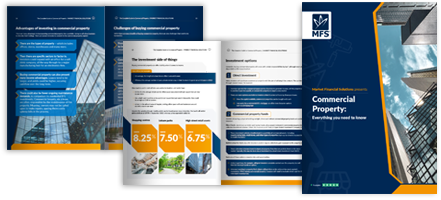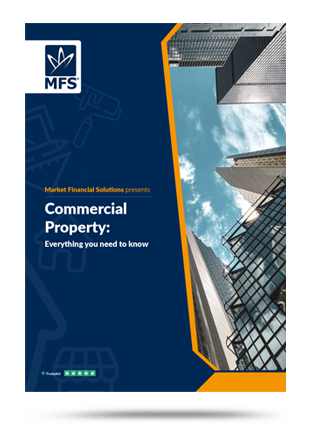Market Financial Solutions are a bridging loan and buy-to-let mortgage provider and are not legal, financial, investment or tax advisers. This document is for informational purposes only and does not, and should not be considered, to constitute legal, financial, investment or tax advice or be relied upon by any person to make a legal, financial, investment or tax decision. Therefore, Investors are encouraged to seek appropriate professional advice. The information in this content is correct at time of writing.

Franchises dominate British high streets. In London alone, you’ll likely find 5 Prets on any single street. For better or worse, these businesses tend to do well. They seem to sprout up on a regular basis and benefit from familiarity. But why are franchises successful? And why do independent businesses seem to disappear? You may even be wondering if this assumption is even correct anymore.
In recent years, the numbers spoke for themselves. The entire industry was worth £17.3 billion in 2018, employing 710,000 people. In the UK, there are approximately 1,000 franchises in operation, spread across many sectors.
But, while the market has done well, the sector may be starting to struggle. Rising costs are putting franchisees under pressure. And consumers are yearning for originality. In this blog, we’ll explore how you could take advantage of the decline in franchising popularity.
Why are franchises successful?
The franchising model has many things going for it. One of the reasons why franchises are successful, is the simplicity of the business model. Operators aren’t starting from scratch. Rather than setting up a business with no guarantee of a future, franchisees likely have an established brand behind them. Along with resources, guidance, reduced start-up costs, and many other forms of support.
However, this support can often turn on a dime. Especially as an economy starts to struggle. Franchisees must remember they don’t have as much control over their operations as they’d like to think they do. Even as parent companies pitch their franchise options as being ripe for entrepreneurs. You may wonder why franchises are successful but, it’s often the biggest names that take a hit.
We’ve seen how this dynamic can play out recently in the food and drink industry. Here, franchising is prevalent. According to data from the British Retail Consortium and Nielsen, food inflation reached 14.5% in February 2023. Fresh food prices also rose to 16.3%. This was the highest rate seen since 2008. As these costs rise, large companies can pass them onto franchisees to deal with.
Source: British Retail Consortium

Some of the biggest franchises are facing pressure
Domino’s sees around two-thirds of its revenues come from franchise sales. But, average cash profits per franchised store was almost 40% lower in the latest half of 2022 when compared to 2021. The company said its fall in profits “was largely driven by the timing lag in passing through higher costs to our franchisees.”
Cake box, another key franchiser, saw its share price drop after warning its full-year margin would take a hit, even as it passed “some” cost increases onto franchisees.
Even the mighty Starbucks has had to defend itself on multiple fronts. The company recently explored the idea of selling its UK operations in the face of rising costs and stiff competition. The coffee giant even had to deal with a small-scale rebellion. Citizens of Stroud launched a petition against the proposed opening of a Starbucks in their town. They warned it would corrode Stroud’s “independent spirit”.
We could see more of this kind of pushback too. Despite franchises currently being more successful than independent businesses, consumers appear to have had enough of endless chains.
Source: The Times, Investors’ Chronicle, The Times
Is there opportunity for property investors in the franchising market?
When we consider what spenders actually want on their high streets, a clear picture emerges. In our High Street report, we surveyed an even spread of consumers. We wanted to find out what would draw shoppers back to their high streets. Turns out, although franchises are successful, we’d all like to see a bit more originality.
Across all age groups and genders, half of respondents said they’d prefer independent business like shops or hospitality venues over chains. What’s more, specific industries often associated with franchising have fallen out of favour. Only 22% of people consider restaurants or takeaways essential for a local high street. Similar results were seen for cafes and coffee shops (23%) and pubs (21%).
While tastes differ across the UK, you may still benefit if you’re tactile with your targeting. In both Northern Ireland and Yorkshire, a strong majority (62%) prefer independent options. There could be scope on the horizon for converting debilitated franchised spaces into fresh premises for budding entrepreneurs.
But this will need a lot of planning and strategizing. Can you afford the taxes? Is there any oncoming legislation you need to be aware of? Should you instead focus on residential properties? You may need to ask yourself these questions sooner rather than later. We’ve already seen many retail giants thought too-big-to-fail shut down. The likes of Debenhams, Topshop, and Beales couldn’t keep up with a changing market. Whose to say we won’t see similar outcomes for Subway, Costa Coffee, or Millie’s Cookies?
How to finance your business?
Regardless of what you decide, we’ll be able to help provide the funding. As costs rise and interest rates creep up, high street lenders have closed their doors in fear. Mainstream lending criteria has tightened, and banks have pulled thousands of products off the shelves. But, our products are designed to be as flexible as possible. No matter how complicated your situation, or how quickly you’ll need funding, we’ll be here to serve your needs.

The Complete
Commercial Property Guide
Everything you need to know
- Extensive introduction
- Lease types
- Regulations & responsibilities
- Finance




